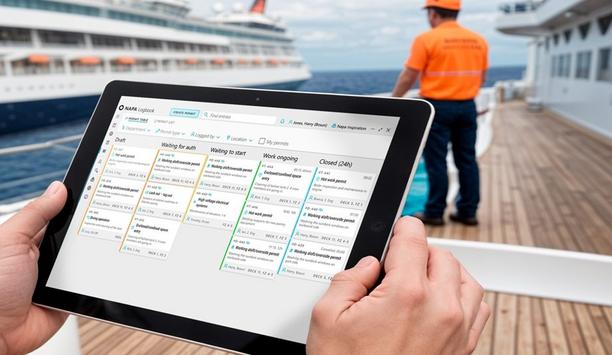Cyber security - Harbour insights
Ammonia is gaining traction as a future fuel in the maritime industry, primarily due to its potential to significantly reduce greenhouse gas emissions. A key driver for ammonia's interest is that it can be carbon-free when combusted, which aligns with the maritime industry's increasing pressure to meet emissions regulations. However, most ammonia production currently relies on fossil fuels. Transitioning to "green ammonia" production is crucial for sustainability. If "green ammonia" is produced...
Trusted by more than 3,000 ships worldwide, NAPA’s Safety Solution software has promoted ship safety and operational efficiency for 35 years, working closely with customers. NAPA's solutions aim to positively impact the maritime industry by simplifying and streamlining onboard and shoreside operations through digitalisation, reducing errors and workload for seafarers, enhancing safety, and enabling more sustainable decision-making. Paper-based system challenges “Historicall...
The maritime industry is taking important steps to improve cybersecurity, catching up rapidly by introducing other industries' best practices into information technology (IT) and operational technology (OT) onboard vessels. Work remains to be done to ensure a cyber-resilient worldwide fleet of maritime operations. The way forward is through collaboration among all major stakeholders. Remote-controlled and autonomous ships In the future, the marine industry will increasingly use remote-control...
Augmented reality (AR) is making waves across various industries, and maritime is no exception. For maritime professionals, AR offers practical, real-time solutions that enhance safety, optimise operations, and improve decision-making both at sea and onshore. Whether it’s helping crews navigate complex environments, assisting in ship maintenance, or providing on-the-job training, AR’s ability to blend digital information with the physical world is proving invaluable in the fast-pac...
As the maritime industry accelerates its journey toward decarbonisation, the focus on alternative fuels has intensified. E-methane E-methane, a synthetic gas produced using renewable electricity and carbon capture, is emerging as a promising substitute for conventional natural gas. This innovative fuel offers a way to significantly reduce greenhouse gas emissions while leveraging existing liquefied natural gas (LNG) infrastructure. For maritime professionals, the potential benefits of e-metha...
The maritime industry, steeped in tradition, is now riding the wave of digital transformation, with big data playing a pivotal role in driving innovation and efficiency. For maritime professionals, the question isn’t whether to embrace big data, but how to maximise its practical benefits. Whether it’s a ship owner, port operator, or related to supply chain logistics, big data has the potential to streamline operations, enhance safety, reduce costs, and bolster profitability. This a...
FuelEU Maritime regulations, which will take effect in 2025, will help to encourage investment in research and development (R&D) for the maritime industry. The European Union initiative is aimed at reducing greenhouse gas emissions from ships operating within EU waters. Adopting cleaner alternative fuels By setting increasingly stringent limits on greenhouse gas (GHG) emissions, FuelEU Maritime makes it clear to the industry that traditional high-emission fuels are not sustainable...
U.S. President Joe Biden has signed an Executive Order aimed at shoring up the cybersecurity of U.S. ports, a move fuelled by mounting concerns about the vulnerability of this critical infrastructure to cyberattacks. This initiative marks a significant shift in policy, empowering key agencies and outlining concrete actions to bolster defences. By empowering key agencies, establishing clear standards, and fostering collaboration, the initiative aims to strengthen U.S. ports against the evolving...







